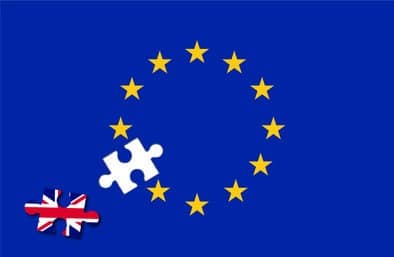During the Spring budget, Chancellor Jeremy Hunt sent shockwaves through the pension landscape with some of the largest changes in recent history to affect pension savers. Whilst the finer details are still to be ironed out; in summary the changes include:
- Increase of the annual allowance from £40,000 to £60,000 per annum, whilst maintaining the 3 year carry forward facility.
- Total abolishment of the Lifetime allowance.
- Increase of the money purchase annual allowance from £4,000 to £10,000.
- Increase of the tapered annual allowance from £4,000 to £10,000 with an increase of the adjusted income threshold from £240,000 to £260,000
All the measures have been designed to encourage people to work for longer and enable the electorate to contribute higher amounts into tax favourable pension arrangements, without worrying about future additional tax charges, such as the lifetime allowance tax charge.
Whilst the news has been welcomed by many in the retirement planning profession, and there certainly are advantages to the sweeping changes, one should not lose sight of the negative implications these changes introduce.
Firstly, all those people who held a form of transitional protection which barred them from making pension contributions from (as early as) 2012 right up to 2023 are at a disadvantage. For the last 10 years such holders of transitional protection have been forced to invest their capital into less favourable tax wrappers. Depending on the transitional protection held, pension contributions would result in the loss of such transitional protection. These individuals have now been given the opportunity to play “catch up” with their pension contributions, however, with the carry forward facility being available for a maximum of 3 years, these members are still disadvantaged by a lack of available pension contributions for the years they held a transitional protection.
A further reaching consequence will be prominent in the offshore pension landscape. Since 2006, members have been able to transfer their UK pension benefits into a Qualified Recognised Overseas Pension Scheme (QROPS). QROPS pension planning is well understood in the expatriate and retiree market with millions of pounds of pension benefits being transferred into QROPS on an annual basis.
A QROPS may offer certain advantages to a member, and this will be dependent on the jurisdiction in which the member is a tax resident. Firstly, (depending on the jurisdiction of the QROPS), a pension commencement lump sum (PCLS) of up to 30% may be taken (as opposed to the 25% limit in the United Kingdom). In the UK, this is known as tax free cash, however, it is only “tax free” for UK tax residents. Many retirees living abroad are unaware that the PCLS may be treated as regular pension income in the country they reside, and hence the increase in PCLS available will have no benefit to them as it would be taxed as pension income nonetheless.
One of the most important arguments in transferring pension benefits to a QROPS would be when a member is at risk of breaching the lifetime allowance (LTA). In a situation where an individual had pension benefits close to the LTA, transferring the benefits into a QROPS would test the pension benefits against the LTA at the time of transfer. Any investment growth which was realised after the transfer to a QROPS, would not be subject to the LTA test and hence an individual could have pension benefits greater than the LTA, whilst not having to pay an LTA excess tax charge.
With the government’s decision to abolish the LTA, there seems to be very little reason why an individual would feel it necessary to transfer their pension benefits into a QROPS. It is hereby acknowledged that certain jurisdictions (such as Australia and New Zealand), may still offer advantages through a QROPS transfer. However, most transfers for European retirees are facilitated to Malta and there seems very little reason now to facilitate a pension transfer into a Maltese based QROPS.
One may argue that the tax-free cash could be larger through a QROPS, however, this would only be applicable in a very limited number of cases. With the abolishment of the LTA in the UK, the tax-free cash has been maintained at 25% of the current LTA (£1,073,100), resulting in a maximum tax free cash of £268,275, irrespective of the total value of the pension benefits. Should an individual transfer the pension benefits to a QROPS to receive the 30% PCLS (which is not capped), then he/she would need to reside in a jurisdiction which levied no/lower income tax on this PCLS. Such instances are very few and far between, with only a handful of exceptions which come to mind (Portugal being one such jurisdiction, in limited circumstances).
With no risk for a future LTA breach and associated LTA excess tax charge; and the limited instances when the PCLS would offer tax advantages, recommending a transfer to a QROPS has become less likely. I fear that the QROPS market may soon become obsolete. An entire industry which has served thousands of retirees very well for the last 13 years, may soon be designated to the history books of pension planning.
This communication is for informational purposes only and is not intended to constitute, and should not be construed as, investment advice, investment recommendations or investment research. You should seek advice from a professional adviser before embarking on any financial planning activity. Whilst every effort has been made to ensure the information contained in this communication is correct, we are not responsible for any errors or omissions.

 The start of a new decade, and with it the beginning of a new era for Britain and its citizens in the form of Brexit, represents the perfect time to review your wealth management plans. From taking a look at the suitability of your asset allocation and your pension savings to reviewing your tax and estate planning, now is an especially pertinent time to develop a clear path into the future.
The start of a new decade, and with it the beginning of a new era for Britain and its citizens in the form of Brexit, represents the perfect time to review your wealth management plans. From taking a look at the suitability of your asset allocation and your pension savings to reviewing your tax and estate planning, now is an especially pertinent time to develop a clear path into the future.